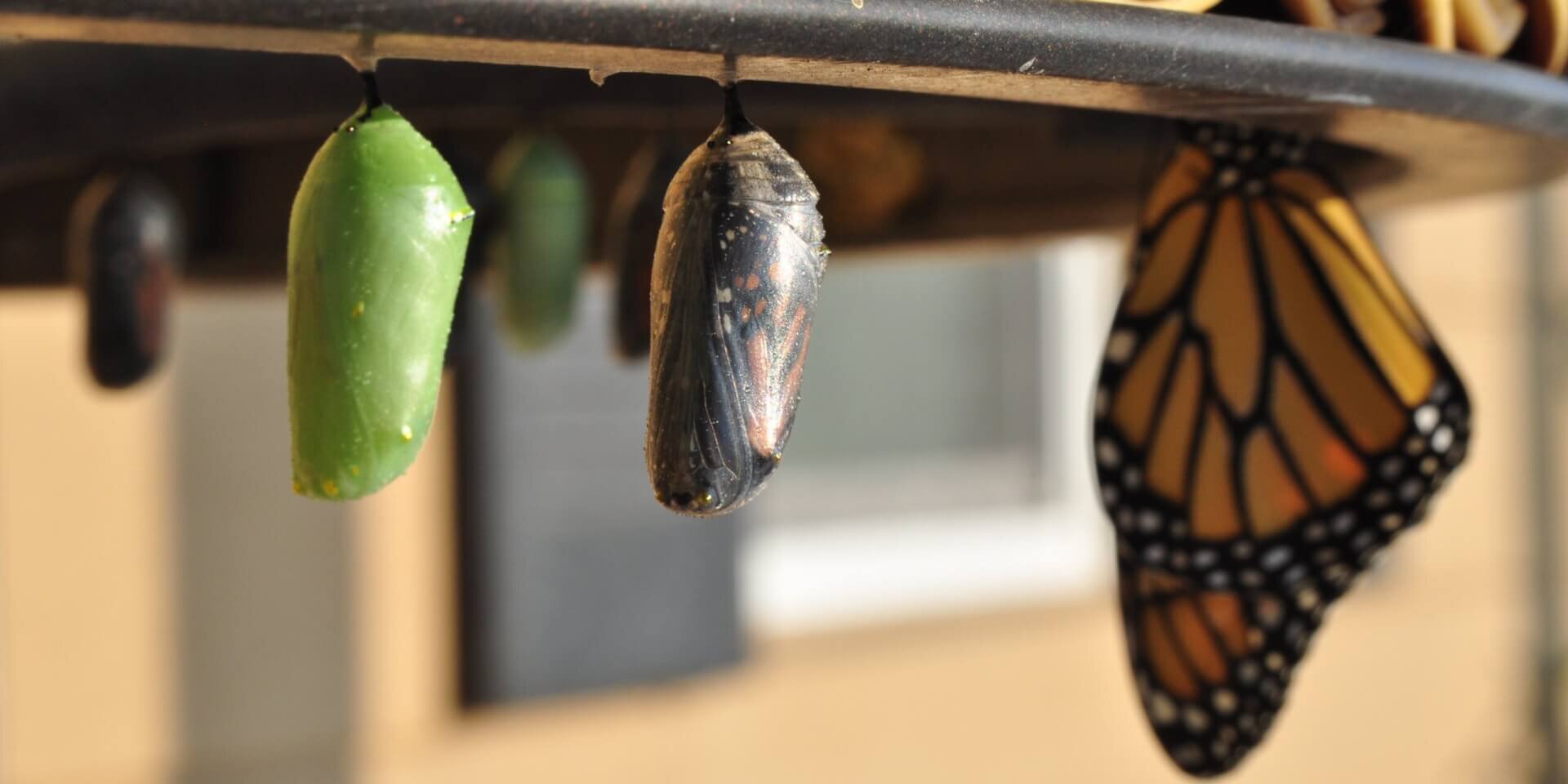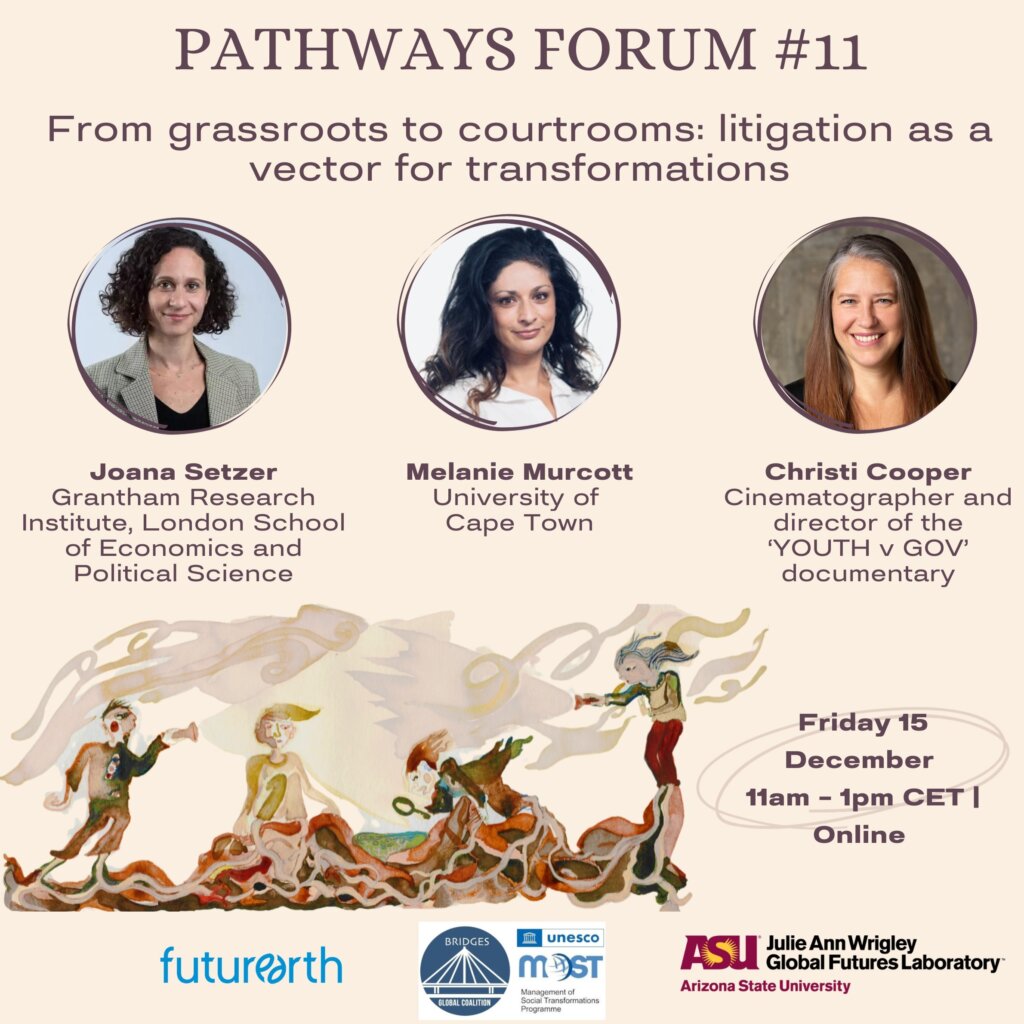
Over the past 10 years, the number of climate litigation cases has shown an overall increasing trend, particularly in the Global South. High profile and successful cases, such as Milieudefensie v. Royal Dutch Shell, Neubauer v. Germany, and Sustaining The Wild Coast v. Minister of Mineral Resources, illustrate the role that litigation can play as a way for citizen groups and communities to challenge structures of power, such as governments and fossil fuel corporations, to hold them accountable for unsustainable governance and practices.
Given that judicial actions are increasingly recognized as an important tool of mobilization and resistance, this webinar will provide an opportunity to explore in more detail how and to what extent litigation is supporting governance and societal transformations for better futures. Questions to be addressed in this session include: how are litigation actions contributing to change even when they are not successful? ; do the actions resulting from climate litigation necessarily pursue justice and good outcomes for the climate system? ; beyond matters of governance and reparation, what are the broader social impacts that litigation can have?
Following a series of presentations from the speakers, an open discussion will provide an opportunity for the participants to contribute with questions, reflections, and insights.
*A streaming link for the film ‘YOUTH v GOV’ will be provided during the webinar*
Rebecca Fenn, Tilburg University, PhD candidate at the department of Public Law and Governance (TransLitigate ERC-funded project)
This event is organized in collaboration with the BRIDGES Global Coalition and ASU Julie Ann Wrigley Global Futures Laboratory

Photo by Suzanne D. Williams on Unsplash